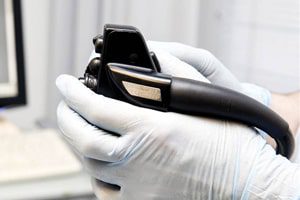
Three manufacturers of duodenoscopes—specialized medical scopes—have received Food and Drug Administration (FDA) warning letters because the scopes have been linked to outbreaks of a deadly “superbug.” The FDA says the companies failed to adequately report problems with the devices and, in some instances, failed to ensure the scopes could be cleaned properly between uses, the Washington Post […]

Scope Makers Warned in the Wake of Superbug Outbreaks
Three manufacturers of duodenoscopes—specialized medical scopes—have received Food and Drug Administration (FDA) warning letters because the scopes have been linked to outbreaks of a deadly “superbug.”
The FDA says the companies failed to adequately report problems with the devices and, in some instances, failed to ensure the scopes could be cleaned properly between uses, the Washington Post reports. The warning letters were sent to Olympus Medical Systems, Fujifilm Corp., and Pentax Medical.
In recent years, duodenoscopes have been linked to outbreaks of difficult-to-treat bacterial infections involving carbapenem-resistant Enterobacteriaceae (CRE). An outbreak at Ronald Reagan UCLA Medical Center in Los Angeles left at least two people dead, and scores of patients were potentially exposed to the dangerous bacteria. Cedars-Sinai Medical Center in Los Angeles reports that four patients were infected by a superbug after undergoing duodenoscope procedures, according to the Post. A Connecticut hospital has contacted nearly 300 patients who might have been exposed to a drug-resistant E. coli during duodenoscope procedures. These incidents, and others, prompted the FDA to alert doctors and hospitals earlier this year that duodenoscopes can be difficult to sanitize between uses and “may facilitate the spread of deadly bacteria.”
Since 2012, 44 scope-related infections occured at Advocate Lutheran General Hospital near Chicago, and at the Virginia Mason Medical Center in Seattle, at least 32 patients became ill and 11 died.
The FDA cited Pentax and Olympus for failing to inform the FDA that their scopes might have “caused or contributed to a death or serious injury” with 30 days of learning about the incidents, as regulations require. Pentax and Fujifilm were cited for failing to validate their instructions for cleaning the scopes, the Post reports. An Olympus spokesman said the company is “reviewing the FDA’s warning letter so that we can provide the required response in a timely manner.” Olympus, the largest maker of duodenoscopes used in U.S. hospitals, is facing lawsuits as a result of superbug infections, and has issued detailed new cleaning instructions for the devices.
Duodenoscopes are used in hundreds of thousands of diagnostic and treatment procedures each year in the United States. A flexible scope equipped with a tiny camera is inserted through the patient’s esophagus into the top of the small intestine. The devices are reused after cleaning and sterilization but have been found to harbor dangerous bacteria even when the hospital follows the manufacturer’s cleaning instructions, according to the Wall Street Journal.
Doctors consider the scopes a key tool in detecting and treating a number of medical problems early and in a minimally invasive way, and regulators and industry officials alike have argued that the benefits of duodenoscopes far outweigh the risks, according to the Post. The FDA said that there is no better diagnostic and treatment alternative for many patients and duodenoscopes should not be removed from the market.
Pentax, Olympus, and Fujifilm each has 15 business days from receipt of the FDA letter to respond to the FDA about how they have addressed the violations and how they plan to ensure such violations do not occur again.


